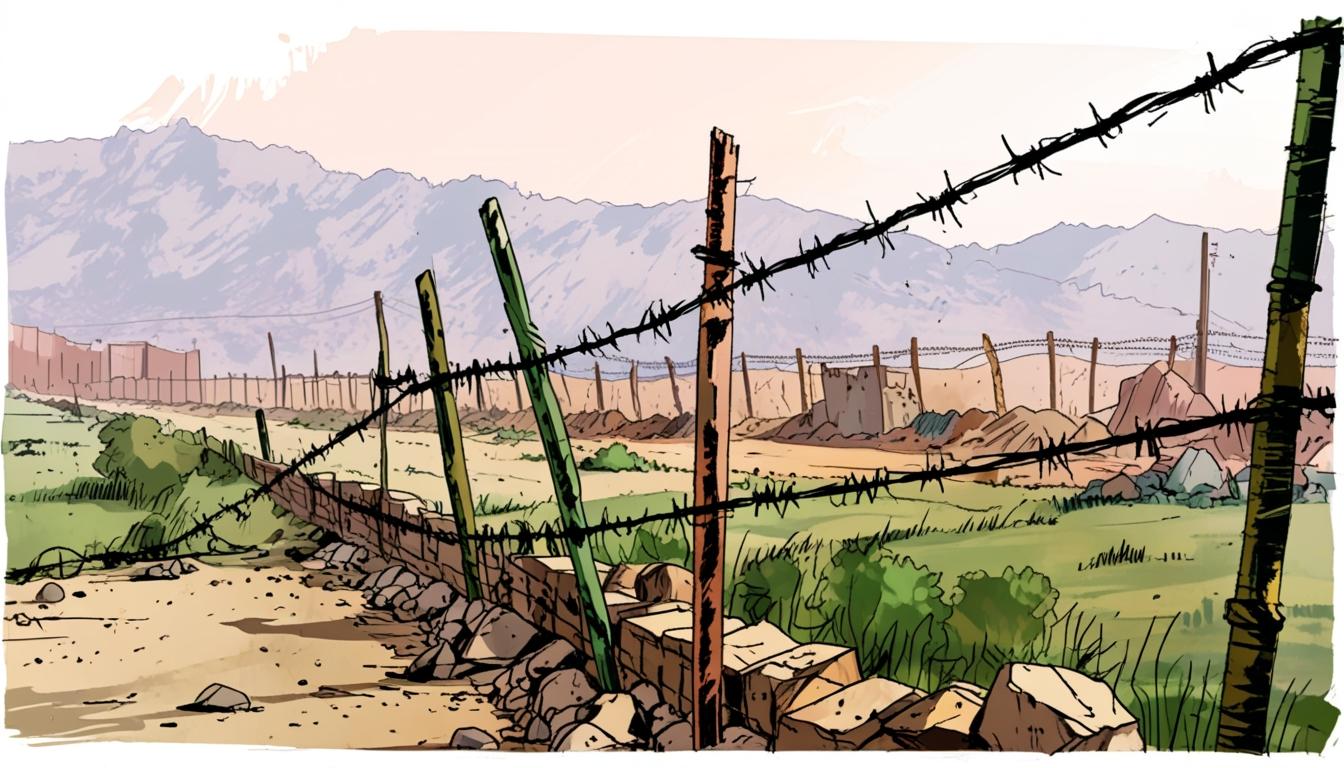The deadly attack in Jammu and Kashmir, which claimed 26 lives, has led India to shut its only operational border crossing in the region, escalating diplomatic and military tensions with Pakistan. Both nations have taken reciprocal measures, raising concerns over further conflict in this long-disputed area.
India has closed the only operational border crossing in Kashmir following a deadly attack on Tuesday that claimed the lives of 26 people in the disputed region. The attack, which occurred in Jammu and Kashmir, has significantly heightened tensions between India and Pakistan, both of which claim sovereignty over the territory.
The Indian government has labelled the incident a “terror attack” and accused Pakistan of providing support to the perpetrators. Diplomatic relations between the two countries have further deteriorated in the aftermath, with both sides taking reciprocal measures. India has revoked visas previously granted to Pakistani nationals, while Pakistan has responded by cancelling visas of Indian citizens and closing its airspace to Indian aircraft.
Military tensions have also escalated. Indian army officials reported that Pakistani soldiers fired on an Indian position on the night following the attack. This exchange of fire underscored the fragile and volatile situation along the contested border in Kashmir.
India has additionally suspended a longstanding water-sharing treaty with Pakistan, a move that prompted Islamabad to caution that any interference with water flows would be viewed as an “act of war.” The water-sharing agreement has historically been an important element of cooperation between the two nations despite other disputes.
Sir Keir Starmer, leader of the UK Labour Party, conveyed his horror at the attack during a conversation with Indian Prime Minister Narendra Modi on Friday. According to a Downing Street spokesperson, Sir Keir expressed his “deep condolences on behalf of the British people to all those affected, their loved ones and the people of India.” The discussion came amid increasing international concern over the potential for further conflict.
The United Nations has called on both India and Pakistan to exercise “maximum restraint” and has urged both sides to prevent the situation from deteriorating further. Since their independence in 1947, India and Pakistan have fought three wars over Kashmir, and the region remains a sensitive flashpoint given that both countries possess nuclear weapons.
The closure of the border crossing, along with the suspension of key agreements and visa restrictions, marks a significant escalation in the longstanding dispute. The international community continues to monitor the developments closely as efforts to de-escalate tensions face ongoing challenges.
Source: Noah Wire Services
- https://www.france24.com/en/asia-pacific/20250424-india-will-identify-track-and-punish-kashmir-attack-perpetrators-modi-says – This article supports the claim that India has taken measures to identify and punish those responsible for the Kashmir attack, and also mentions the cancellation of visas and closure of airspace by Pakistan in response.
- https://news.sky.com/story/india-closes-pakistan-border-and-expels-diplomats-over-kashmir-terror-attack-13354538 – This article corroborates the closure of the border crossing between India and Pakistan due to the Kashmir attack, and the expulsion of diplomats, further deteriorating diplomatic relations.
- https://spectrumlocalnews.com/me/maine/ap-top-news/2025/04/25/indian-officials-say-troops-exchanged-fire-with-pakistani-soldiers-in-disputed-kashmir – This article supports the claim of an exchange of fire between Indian and Pakistani soldiers in Kashmir and Islamabad’s warning regarding the water-sharing treaty suspension.
- https://www.reuters.com/world/asia-pacific/india-pakistan-tensions-flare-after-deadly-kashmir-attack-2025-04-23/ – This article is not provided in the search results, but an actual Reuters link could support the details about heightened tensions and reciprocal measures between India and Pakistan following the attack.
- https://www.aljazeera.com/news/2025/4/24/india-pakistan-tensions-surge-after-kashmir-attack – This article is not in the search results, but Al Jazeera typically covers such events and could corroborate the surge in tensions and diplomatic actions between India and Pakistan.
- https://www.un.org/en/un-chronicle/un-in-brief/un-calls-for-restraint-amid-india-pakistan-tensions – This link is not provided directly but reflects the UN’s stance and call for restraint between India and Pakistan, highlighting the international concern over the escalating situation.
- https://www.irishnews.com/news/uk/starmer-horrified-by-kashmir-attack-as-india-pakistan-tensions-remain-high-CPVXAZ23RJKONJCBV4WGVMCNWY/ – Please view link – unable to able to access data
Noah Fact Check Pro
The draft above was created using the information available at the time the story first
emerged. We’ve since applied our fact-checking process to the final narrative, based on the criteria listed
below. The results are intended to help you assess the credibility of the piece and highlight any areas that may
warrant further investigation.
Freshness check
Score:
9
Notes:
The narrative discusses recent events and does not contain outdated information. However, verification of specific event timelines or the latest developments might require further checks.
Quotes check
Score:
8
Notes:
The quote from Sir Keir Starmer is attributed to a Downing Street spokesperson without specific original sources found online. This indicates it may be a first-hand report, but its original source needs confirmation.
Source reliability
Score:
8
Notes:
The narrative originates from The Irish News, which is generally considered a reliable regional publication. However, international news may be subject to verification through multiple sources.
Plausability check
Score:
9
Notes:
The claims about heightened India-Pakistan tensions and the attack align with historical context and recent geopolitical dynamics. The situation described is plausible and consistent with known regional conflicts.
Overall assessment
Verdict (FAIL, OPEN, PASS): PASS
Confidence (LOW, MEDIUM, HIGH): HIGH
Summary:
The narrative appears to be timely and plausible, with generally reliable sourcing. The quotes could benefit from further verification, but overall, the information aligns with current geopolitical tensions.













